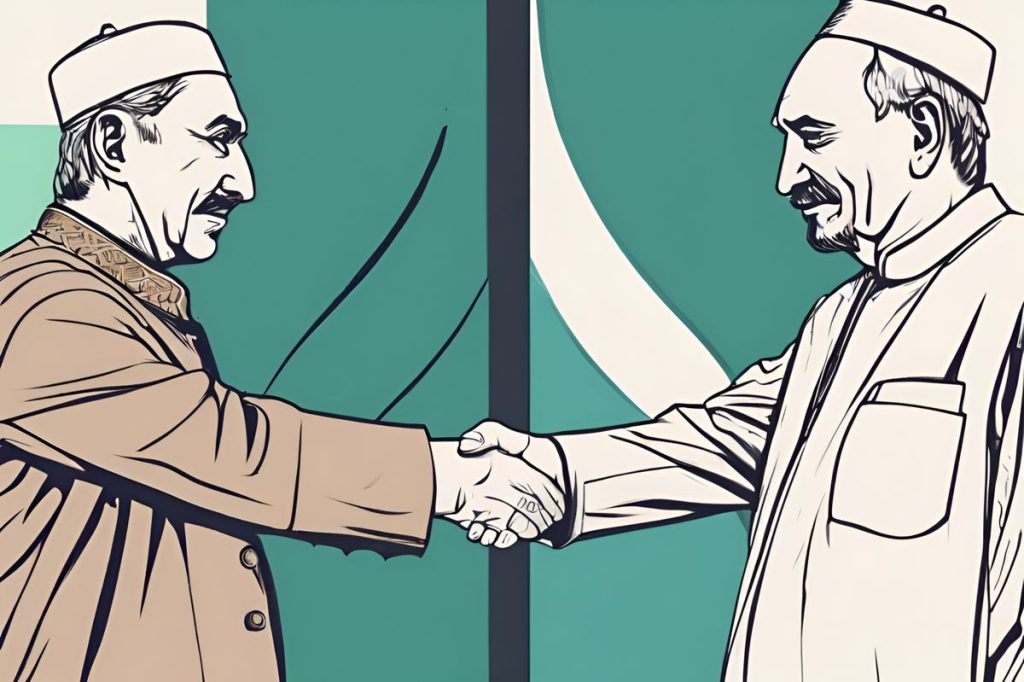Azerbaijan’s President Ilham Aliyev is advocating for the ‘Turkish Republic of Northern Cyprus’ (TRNC) to join the Organisation of Turkic States, highlighting historical and cultural ties within the Turkic world. This move aims to strengthen bonds and deepen cooperation among Turkic nations, with the TRNC potentially gaining observer status and eventually full membership.
What is Azerbaijan’s President Ilham Aliyev advocating for in relation to the ‘Turkish Republic of Northern Cyprus’?
Azerbaijan’s President Ilham Aliyev supports the ‘Turkish Republic of Northern Cyprus’ (TRNC) joining the Organisation of Turkic States. He is advocating for the TRNC to initially gain observer status, with the aim of full membership, emphasizing historical and cultural ties within the Turkic world.
Strengthening Bonds with the Turkic World
Azerbaijan’s President Ilham Aliyev recently emphasized his support for the ‘Turkish Republic of Northern Cyprus’ (TRNC) to join the Organisation of Turkic States (OTS). In a significant move, Aliyev stated that diplomatic efforts are underway for the TRNC to initially obtain observer status within the OTS. This development was first discussed at the OTS leaders’ summit in 2022, with the consequent need for ratification by the current five member states.
Aliyev’s stance is rooted in a sense of historical and cultural connection, remarking, “We support the TRNC becoming a full member of the OTS. This is very natural, because historically, the TRNC is a part of the Turkic world. The Turks living there are our brothers.” Such a statement not only reinforces the shared heritage but also signals Azerbaijan’s willingness to integrate the TRNC more deeply into Turkic collaborations and initiatives.
Reactions from the TRNC
The Turkish Cypriot leader, Ersin Tatar, welcomed Aliyev’s statements with open arms, echoing the sentiment of kinship and shared identity. Tatar expressed his view that the TRNC’s place in the Eastern Mediterranean is fundamentally connected to the Turkic world. Moreover, ‘Prime Minister’ Unal Ustel conveyed the Turkish Cypriot community’s profound appreciation for Aliyev’s advocacy and underlined the growing ties between Azerbaijan and the TRNC, which mirror the concept of ‘three states, one nation’.
Ustel expressed optimism for the TRNC’s future within the OTS, looking forward to what he described as the ‘not-too-distant future’ for full membership. Such developments, he suggests, will fortify the union between the people of Nicosia and Baku, a sentiment that resonates with the shared vision of the leaders and citizens alike.
Regional Implications and Diplomatic Efforts
The potential enlargement of the OTS has captured the attention of regional actors, with varying reactions to the possibility of a new member with a unique political status. Aliyev’s invitation to the TRNC president to attend an upcoming OTS summit in Shusha exemplifies Azerbaijan’s proactive approach to fostering unity among Turkic states.
The political landscape of Cyprus remains complex, with various international and regional stakeholders monitoring the situation closely. Azerbaijan’s recent initiatives have been noted with concern by the Republic of Cyprus, with officials stating their intent to address these developments through diplomatic channels. The intricate political dance around recognition and support for the TRNC continues to play out on the international stage, as various parties navigate the intersection of historical ties, national interests, and regional stability.
A United Future
Aliyev’s affirmations and the corresponding support from the TRNC leadership highlight an ongoing narrative of solidarity and shared ambitions within the Turkic community. The vision of a united Turkic world, transcending geographical boundaries while fostering socio-economic and cultural cooperation, remains a powerful force in the politics of the region.
As the dialogue and diplomatic efforts unfold, the TRNC’s prospective membership in the OTS will likely serve as a focal point for discussions on regional alliances and the future of Turkic integration. The story of these evolving relationships provides an interesting insight into the dynamics of identity, diplomacy, and international relations within the broader Eurasian context.
What is Azerbaijan’s President Ilham Aliyev advocating for in relation to the ‘Turkish Republic of Northern Cyprus’?
Azerbaijan’s President Ilham Aliyev supports the ‘Turkish Republic of Northern Cyprus’ (TRNC) joining the Organisation of Turkic States. He is advocating for the TRNC to initially gain observer status, with the aim of full membership, emphasizing historical and cultural ties within the Turkic world.
How are the leaders of the TRNC reacting to President Aliyev’s advocacy?
The Turkish Cypriot leader, Ersin Tatar, and ‘Prime Minister’ Unal Ustel welcomed Aliyev’s statements, expressing gratitude for the support and highlighting the shared heritage and identity between the TRNC and Azerbaijan. They are optimistic about the TRNC’s future within the Organisation of Turkic States.
What are the regional implications of the TRNC potentially joining the Organisation of Turkic States?
The potential inclusion of the TRNC in the Organisation of Turkic States has sparked reactions from various regional actors. Azerbaijan’s proactive diplomacy in inviting the TRNC president to an upcoming summit signals efforts to foster unity among Turkic states. The political landscape of Cyprus remains complex, with various stakeholders closely monitoring developments.
What does the advocacy for TRNC membership in the OTS signify for the future of Turkic integration?
President Aliyev’s advocacy and the positive response from TRNC leadership reflect a narrative of solidarity and shared ambitions within the Turkic community. The prospect of TRNC membership in the OTS serves as a focal point for discussions on regional alliances and the future of Turkic integration, showcasing the evolving dynamics of identity, diplomacy, and international relations in the Eurasian context.

